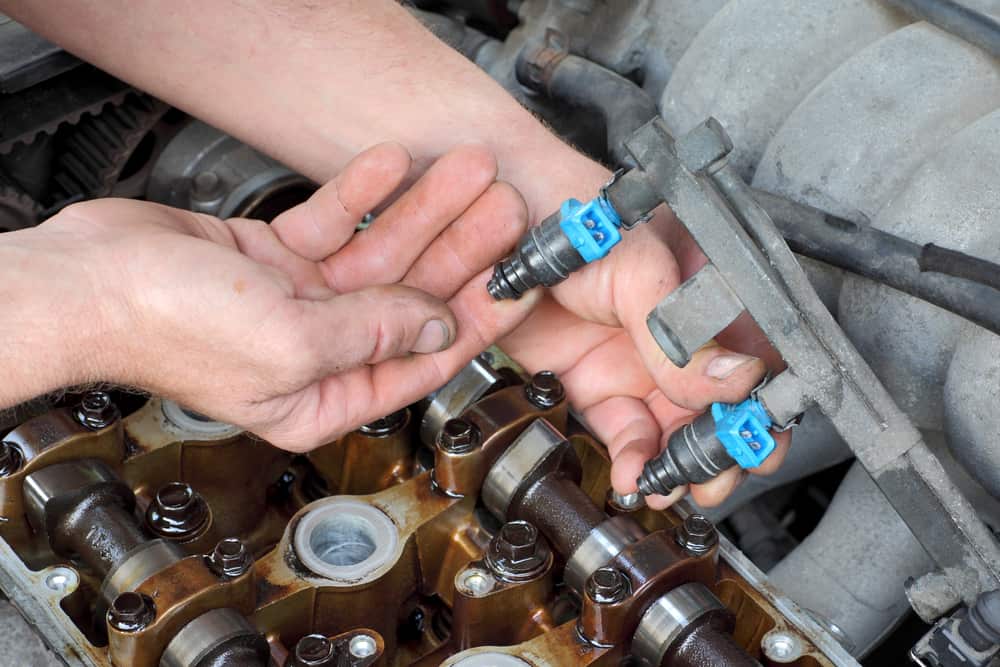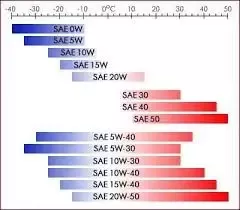Experiencing a loss of power when accelerating can be frustrating and concerning for any car owner. It can affect the performance and drivability of your vehicle, making it important to address the issue promptly. There are several potential reasons why your car may be losing power when you accelerate, and understanding these factors can help you diagnose and resolve the problem effectively.

Credit: m.youtube.com

Credit: www.breakerlink.com
Potential Causes of Power Loss When Accelerating
When your car struggles to gain speed or respond quickly when you press the accelerator, it’s essential to consider various factors that could be contributing to the issue. Some common causes of power loss during acceleration include:
| Cause | Description |
|---|---|
| Low Compression | Reduced pressure in the combustion chambers can lead to decreased power output. |
| Clogged Fuel Filter | A restricted fuel flow can impede engine performance and acceleration. |
| Bad Air Filter | A dirty or clogged air filter can disrupt the air-fuel mixture, affecting acceleration. |
| Camshaft Position Sensor Malfunction | A faulty sensor can cause timing issues, impacting engine power. |
| MAF Sensor | A malfunctioning Mass Air Flow sensor can lead to improper fuel delivery and reduced power. |
| Oxygen Sensor Malfunction | Defective oxygen sensors may result in an incorrect air-fuel ratio, affecting acceleration. |
| Bad Fuel Injectors | Worn or faulty fuel injectors can disrupt fuel delivery, leading to power loss. |
| Bad or Weak Fuel Pump | A failing fuel pump can result in inadequate fuel supply to the engine, impacting acceleration. |
Addressing the Issue
Once you have identified the potential causes of power loss during acceleration, it’s important to take appropriate action to address the issue. Depending on the specific problem affecting your vehicle, the following solutions may be recommended:
- Replacing spark plugs or seeking assistance from a mechanic regarding ignition coil issues.
- Cleaning the car’s air filter or having the oxygen sensor checked by a professional.
- Replacing the fuel filter or seeking assistance for a blocked exhaust concern.
Transmission and Drivetrain Considerations
Aside from the aforementioned factors, issues related to the transmission and drivetrain can also contribute to power loss during acceleration. For manual transmissions, a worn-out clutch can lead to slipping gears and reduced power output. In automatic transmissions, a faulty torque converter may impede acceleration. Regular maintenance, fluid changes, and timely repairs can help prevent these transmission-related issues.
Common Symptoms and Solutions
When your car feels sluggish or struggles to accelerate, it’s important to consider common symptoms and potential solutions to address the problem effectively. Some of the symptoms that may indicate power loss during acceleration include:
- Slipping gears in the transmission
- Worn-out clutch (in manual transmissions)
- Faulty torque converter (in automatic transmissions)
Inspecting the spark plugs and other engine components is essential to ensure they are performing correctly. If any components appear worn or damaged, they may be contributing to the power loss during acceleration. Furthermore, examining the fuel system and air intake for blockages is crucial in identifying and resolving potential issues.
Read More: What is the Difference between Drive Belt and Timing Belt?
Frequently Asked Questions
How Do You Fix Loss of Power When Accelerating?
Loss of power when accelerating in a car can be due to a variety of issues such as clogged air filter, faulty oxygen sensor, blocked exhaust, worn-out spark plugs, or fuel system malfunctioning. To fix the issue, one can replace spark plugs, clean air filter, or replace fuel filter, or get the vehicle checked by a mechanic.
Regular transmission maintenance and timely repairs can also help avoid power loss during acceleration.
Why Does My Car Feel Like Its Losing Power When Accelerating?
If your car feels like it’s losing power when accelerating, there could be a few possible causes. Slipping gears, a worn-out clutch (in manual transmissions), or a faulty torque converter (in automatic transmissions) can all lead to power loss. Regular transmission maintenance, fluid changes, and timely repairs can help avoid these issues.
Additionally, inspecting spark plugs and other engine components, as well as checking the fuel system and air intake for blockages, can help address any power loss concerns.
How Do I Fix My Car From Struggling To Accelerate?
To fix your car from struggling to accelerate, start by inspecting the spark plugs and other engine components for wear or damage. Clean or replace them if necessary. Next, check the fuel system and air intake for any blockages. If there are any, remove them to ensure proper airflow.
If these steps don’t resolve the issue, it’s recommended to consult a mechanic for further diagnosis and repair.
Why Does My Car Feel Sluggish To Accelerate?
A sluggish car acceleration could be due to issues like clogged air or fuel filters, faulty sensors, or a weak fuel pump. Regular maintenance and timely replacement of spark plugs and filters can help restore power. Get a mechanic to check for any underlying engine or transmission problems.
Conclusion
Experiencing power loss when accelerating can stem from various factors, including issues with the fuel system, air intake, sensors, and transmission components. By understanding the potential causes and symptoms of power loss, car owners can take proactive steps to diagnose and address the problem effectively. Whether it involves replacing faulty components, addressing transmission concerns, or seeking professional assistance, resolving power loss during acceleration is essential for maintaining the performance and reliability of your vehicle.


